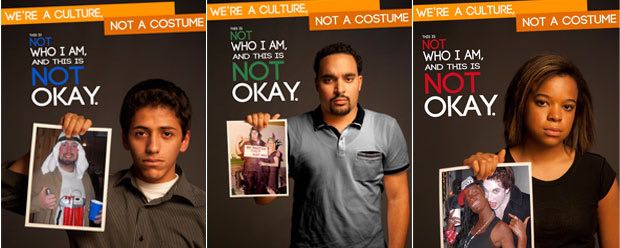Viewpoint: Be aware of cultural appropriation throughout Halloween
October 30, 2018
Halloween is a time of spooks, scares and shivers of terror, but it is important for children and adults participating in the celebration to be mindful of cultural appropriation.
Every year there is a handful of people, including students, who parade around dressed as Native American princesses, mariachi men and sexy geishas in a kimono. Although people may not have the intention of being racist, the culture of others should not be transformed into a costume.
It does not matter if the object of the costume is to be funny, it still does not take into consideration the people from that particular culture. Their culture should not be utilized in an attempt to elicit laughs.
According to Bruce H. Ziff and Pratima V. Rao in “Borrowed Power: Essays on Cultural Appropriation,” “The term cultural appropriation has been defined as ‘the taking—from a culture that is not one’s own—of intellectual property, cultural expressions or artifacts, history and ways of knowledge.’”
Before choosing a costume, one should think about whether it is part of a culture or group. If the costume does, then it should be avoided. Try and imagine what people of that culture would feel about a part of themselves being paraded around town for a laugh and a good time.
“That is, we could raise questions about cultural takings of various kinds by members of culture A from culture B and vice versa, and through a type of ‘moral algebra,’ we could search for principles of universal fairness,” continued Ziff and Rao.
During Halloween, costumes take from a particular culture but do not give anything positive in return, which is where it highlights the immoral use of culture. The fact of this usage is that no one has given permission to utilize these cultural aspects.
Costumes can also elicit stereotypical attributes that are not part of that culture. This can cause hatred and hurtful feelings.
For instance, many costumes are converted into sexy costumes for adults. The costumes then alter the authenticity and can portray false assumptions about a culture.
“The concern is that appropriation can either damage or transform a given cultural good or practice,” said Ziff and Rao.
They continued to explain the concept that culture can be in three forms: production, expression and creation. American industries produce costumes that utilize cultural aspects to make money. It is hard to create claims and rights of a cultural heritage, which leads to cultural appropriation.
It is the duty of the American people to see that this usage of culture for Halloween costumes is wrong and thus should be avoided at all costs. The detrimental effects that cultural appropriation has on society is saddening, causing a divide between people.
As a society, people should be empathetic towards others. Instead, many times people belittle others’ feelings and reactions by saying that their feelings are unwarranted. This is where the power of the people is influential.
A fire cannot begin without a match. One person can be the match that lights the fire for change. In order to advance the notion of cultural appropriation, it must be talked about and prevented. These ideas can then spread like a wildfire and produce additional change.






